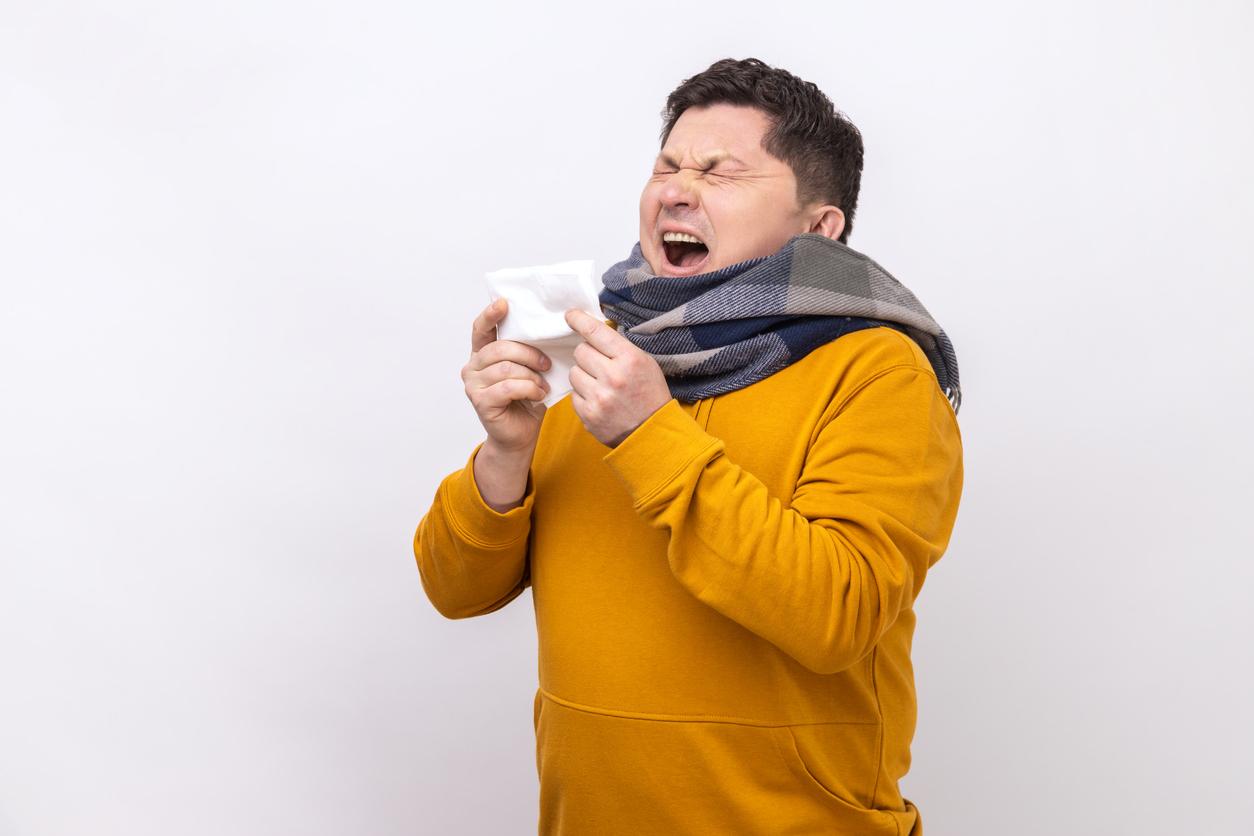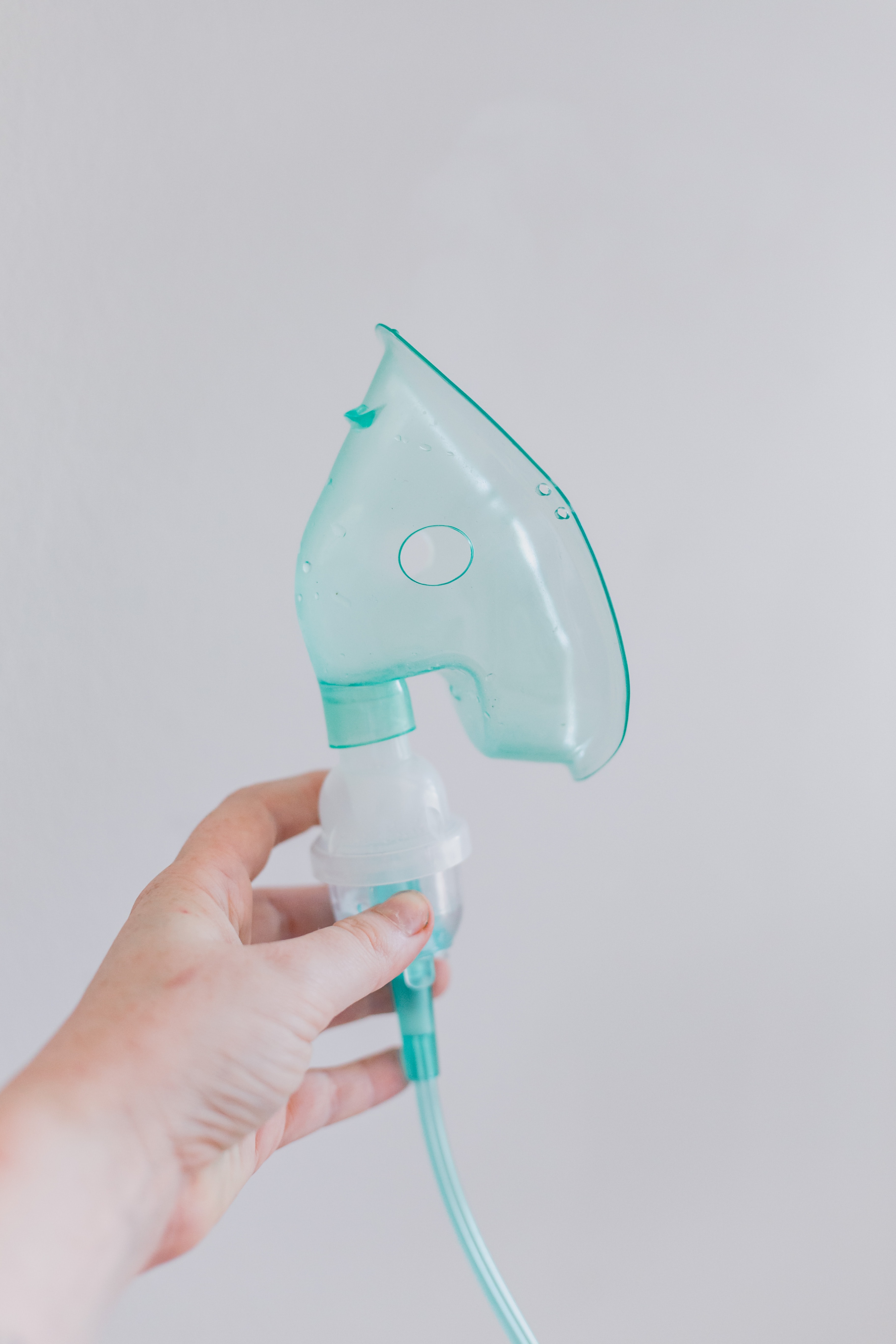8 Ways to Get Rid of a Cough Fast
Key takeaways
- Immediate relief from a cough can often be achieved through OTC remedies and home treatments, such as expectorants or suppressants, hydration, throat-lozenges, honey and salt water gargles
- Identifying the type of cough (dry vs. wet) and its underlying cause (infection, allergies, reflux, etc.) is essential for choosing the right remedy
- If a cough persists for weeks, produces discolored or bloody mucus, causes breathing difficulty, or is accompanied by fever or other serious symptoms, talk to a healthcare provider for advice
Coughing is a reflex that happens so naturally that we normally don’t think twice about it. It’s how your body expels germs, dust, phlegm and more. An occasional cough is generally nothing to worry about - it helps to keep your throat clear and free of irritants.
However, a persistent cough can be frustrating and disruptive. It can take a toll on your sleep and your ability to have a conversation, and it’s often accompanied by painful symptoms like a sore throat.
A wide range of things can trigger a cough, ranging from the flu to medication. Whether your cough is from the irritating tickle of allergies, a cold symptom or just an unexpected rasp that’s decided to make itself at home, we’ll explore some strategies to help provide some fast relief from it - day or night.
1. Consider an OTC cough expectorant
Over-the-counter (OTC) cough expectorants are medicines that are typically recommended for treating a wet cough (the type of cough where you’re hacking up mucus and phlegm). These cough medicines are most effective at reducing coughing from upper respiratory tract infections like bronchitis or the common cold. They can also be taken day or night.
Expectorants contain an active ingredient called guaifenesin, which works by thinning that mucus. It’s believed that when the mucus is thinned, it becomes easier to clear from the throat and therefore is less likely to trigger the cough reflex.
Despite its FDA approval, however, an analysis of multiple studies found that there’s limited evidence that guaifenesin can help alleviate a cough. Therefore, it may be best to explore other treatment options if you feel that a cough expectorant isn’t providing you with relief.
Common cough expectorant brands include Mucinex and Robitussin Chest Congestion. There are also many generic brands available as well. OTC expectorants generally range in price from $7 to $20.
It’s important to note that cough expectorants can be harmful to children. The American Academy of Pediatrics (AAP) advises against administering expectorants, and most other cough and cold medications, to children under the age of 4. For children over the age of 4, it’s recommended that you ask your child’s doctor for guidance.
2. Try a cough suppressant
Cough suppressants are another affordable, over-the-counter remedy for cough relief. Suppressants are typically better at treating a dry cough (a type of cough that doesn’t produce any phlegm or mucus). Dry coughs can be caused by allergies, asthma, chronic acid reflux or even air pollution.
OTC cough suppressants typically contain an ingredient called dextromethorphan. Dextromethorphan is an antitussive, a type of medication that is thought to suppress a part of your brain that controls your coughing reflex. For nighttime cough relief, you can also purchase OTC cough medicines with antihistamines (a type of allergy medication), which can make you feel slightly drowsy.
Like expectorants, cough suppressants are not recommended for children. The AAP guidelines state that suppressants are unsafe for children under the age of 4. For children over the age of 4, it’s recommended that you ask your child’s doctor for guidance.
3. Hydrate with plenty of fluids
Drinking fluids (especially water) is a simple but effective way to alleviate a cough. Fluids can help to thin mucus in your airways, making it easier to expel and reducing the severity and frequency of your cough. This is particularly helpful when dealing with a cold or respiratory infection since thick mucus can obstruct your airways and worsen coughing fits.
Hot beverages like herbal tea or broth can also help to soothe symptoms of a cough such as a raw or irritated throat. Just make sure that your beverage isn’t too hot to avoid scalding yourself!
A study from 2021 found that even healthy young students cough more frequently if they don't drink enough water, so it's especially important to stay hydrated if you’re feeling under the weather.
4. Moisten the air with a humidifier
Humidifiers work by increasing the amount of moisture in the air. Dry air can worsen a cough by drying out your throat and thickening mucus. A humidifier can help restore moisture to the air and calm your cough. Consider placing a cool-mist humidifier or a vaporizer in your living space, or setting one up next to your bed to help with nighttime coughing. This can help to keep your throat from drying out and exacerbating your cough.
It’s important to note that humidifiers can actually aggravate certain medical conditions, like asthma or allergies. This is because mold and bacteria thrive in humid environments and can grow inside your humidifier if it’s not well-maintained. Make sure to always clean your humidifier after each use and switch out the water daily. You should also talk to your provider to ensure that a humidifier won’t make matters worse for your cough.
5. Pop in a cough drop
Cough lozenges, also known as cough drops, are a great way to reduce your urge to cough or soothe a sore throat. They stimulate saliva production, which helps to keep your throat moist. Most cough drop brands also include ingredients like menthol and phenol, which act as mild anesthetics and can relieve pain from a sore throat.
If you don’t have cough drops laying around, sucking on a piece of hard candy can help as well! Just be sure to avoid giving these hard candies to children under the age of 4, as they can be a choking hazard.
6. Gargle with salt water
Gargling with salt water is a popular home remedy for relieving a sore throat. While there isn’t as much evidence to support that salt water can alleviate a cough, research suggests that gargling with salt water may help prevent upper respiratory tract infections due to its antimicrobial properties. The salt water can also help to soothe irritation and discomfort from a sore throat. This, in turn, may help to make your cough less painful.
To make a rinse, just mix a teaspoon of salt with a cup of warm water and then gargle with the mixture for 30 seconds or so before spitting it out.
7. Enjoy a spoonful of honey
Honey is a time-tested way to alleviate cough symptoms, especially if you’re trying to relieve a sore throat. It coats the throat, helping to soothe irritation caused by coughing. The soothing effect of honey may also suppress the cough reflex and make you feel more comfortable.
To try this remedy, simply swallow a spoonful of honey. You can also mix honey with some hot water and lemon juice or stir it into a cup of tea.
Honey can also be an effective remedy for children. A 2018 review on the effects of honey on coughing for children found that it may be better at reducing the frequency and severity of a cough than a number of other OTC cough medicines. It also found that honey’s ability to suppress a cough may be pretty comparable to OTC cough suppressants like dextromethorphan.
Honey is not safe for children under the age of 1, since they can develop an illness called infantile botulism from spores in the honey. However, it is generally considered to be a very safe and affordable method to soothe a cough or sore throat for those over the age of 1.
8. Steer clear of acid reflux triggers
Acid reflux, also known as gastroesophageal reflux disease (GERD), can lead to a cough for several reasons. It occurs when stomach acid flows back into the esophagus, the tube that connects your mouth with your stomach. This acidic backwash can irritate the lining of your esophagus, causing symptoms such as frequent coughing. Here are some ways to avoid triggering your acid reflux:
- Avoid trigger foods and drinks: Common acid reflux triggers include spicy foods, fatty foods, chocolate, caffeine, alcohol, and carbonated beverages.
- Eat smaller, more frequent meals: Large meals can increase the pressure on the stomach and the lower esophageal sphincter (LES), making reflux more likely. Eating smaller, more frequent meals can help reduce this pressure and prevent acid reflux.
- Don't lie down immediately after eating: Lying down can make it easier for stomach acid to travel back into the esophagus. Try to wait at least 2-3 hours after eating before lying down or going to bed.
- Elevate your head at night: Propping your head up with a few pillows can help prevent stomach acid from flowing back into the esophagus during sleep.
- Avoid smoking and alcohol: Smoking and alcohol can weaken the LES, making it easier for acid to rise back up into the esophagus. Avoiding smoking and limiting alcohol intake can help reduce GERD symptoms.
Additional methods for preventing a cough
Along with the remedies listed above, there are some additional steps that you can take to prevent a cough in the first place. We’ve noted a few below:
- Avoid smoking and secondhand smoke: Smoking is a primary cause of chronic cough. Cigarettes, e-cigarettes, vapes and other can all contribute to a cough. Avoiding smoking and staying away from environments where people smoke can significantly reduce your risk of developing a cough.
- Use high-efficiency particulate air (HEPA) filters: Allergens or mold might be at the root of your cough. Using HEPA filters in your home can help filter out allergens and irritants that might cause coughing.
- Keep windows closed during pollen seasons: Pollen can be a significant irritant that results in coughing, sneezing, and itchy eyes. Keeping windows closed during high pollen seasons can help reduce your exposure.
- Maintain clean bedding and clothing: Pollen, dust, and other allergens can cling to fabrics. Regularly washing your clothes and bedding can reduce your exposure to these irritants, especially if you’ve been outdoors during pollen season!
- Avoid air pollutants when possible: Air pollutants, such as vehicle exhaust, industrial emissions, and even strong odors from cleaning products or perfumes, can trigger coughing. The Environmental Protection Agency (EPA) has a handy app that allows you to quickly check the Air Quality Index so that you can minimize your exposure to these irritants.
- Practice good hygiene: Viruses and bacteria can cause coughing. Regular handwashing and using sanitizers can help prevent the spread of infectious agents that could lead to a cough.
Common causes of coughing
To effectively treat a cough, it’s important to understand what kind of cough you have - and what’s causing it.
There are two main types of cough: an acute cough and a chronic cough.
An acute cough typically lasts for under a month, and it’s normally a symptom of an acute illness or viral infection like the cold, the flu, or allergies.
Possible causes of an acute (short-term) cough include:
- Allergies
- Bronchitis
- The common cold
- The flu
- Pneumonia
- COVID-19
A chronic cough, on the other hand, is a cough that lasts for more than 2 months for adults or 1 month for children. Chronic coughs generally signal a chronic (long-lasting) condition like asthma.
Possible causes of a chronic (longer-term) cough include:
- Asthma
- Acid reflux or Gastroesophageal reflux disease (GERD)
- Chronic allergies
- Chronic obstructive pulmonary disease (COPD) or other smoking-related lung disease
- Post-nasal drip
- Medication-induced chronic cough
A healthcare provider can help you determine what’s causing your cough and determine a treatment plan.
When to see a doctor about your cough
Long-term, vigorous coughing can lead to additional health problems: side effects can range from migraines and dizziness to insomnia and broken ribs!
Because of this, it’s important to seek medical advice from a healthcare provider immediately if your cough persists for more than a few weeks or if you’re experiencing any of the following:
- Shortness of breath, chest tightness, or wheezing
- Discolored or bloody mucus
- A fever that lasts more than 3 days
How Sesame can help
Sesame’s providers offer affordable, convenient online doctor appointments to help determine the right treatment for your cough. If medication is prescribed, they can send your prescription to a pharmacy of your choice, typically within the same day. Whether your cough is due to allergies, infection, or another condition, Sesame’s providers can help you breathe easier and get back to feeling your best.









